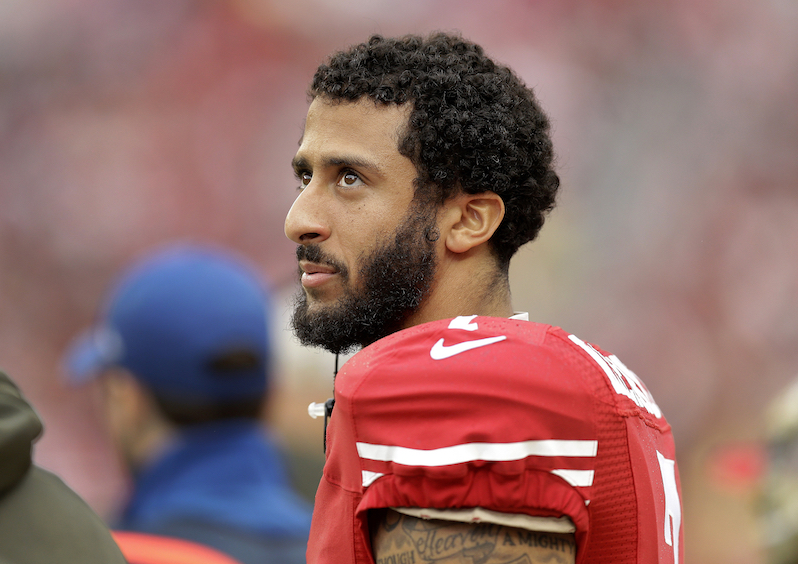I Have Never Stood Up for the National Anthem—and Never Will
No country is worth pledging blind allegiance to. Patriotism, nationalism, anthems, flags and syrupy words about "love of country" are constructs aimed at fostering unquestioning obedience from people lucky enough to be deemed citizens.Patriotism, nationalism, anthems, flags and syrupy words about "love of country" are constructs aimed at fostering unquestioning obedience from people lucky enough to be deemed citizens. San Francisco 49ers quarterback Colin Kaepernick stands on the field during a 2015 game. (Ben Margot / AP)
1
2
San Francisco 49ers quarterback Colin Kaepernick stands on the field during a 2015 game. (Ben Margot / AP)
1
2

San Francisco 49ers quarterback Colin Kaepernick stands on the field during a 2015 game. (Ben Margot / AP)
Independent journalism is under threat and overshadowed by heavily funded mainstream media.
You can help level the playing field. Become a member.
Your tax-deductible contribution keeps us digging beneath the headlines to give you thought-provoking, investigative reporting and analysis that unearths what's really happening- without compromise.
Give today to support our courageous, independent journalists.






You need to be a supporter to comment.
There are currently no responses to this article.
Be the first to respond.